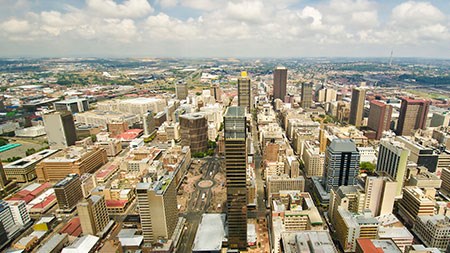Say the financial gurus, to those with mortgage bonds wanting to maximise the benefits of prime interest rates dropping.
By not spending what you’re saving, last week’s drop of half a percentage point in mortgage lending rates will result in savings of R150 on a R500 000 mortgage loan taken out over 20 years. Savings of R255 can be achieved on an R 800 000 bond over 20 years, and R319 on a R1- million bond over 20 years. Unlike short term spending, not only it will it accumulate into compound savings offset against monthly re-payment amounts, it will also reduce the original amount borrowed on which interest are calculated on.
Although the SA Reserve Bank’s 50 basis point reduction in SA’s repo rate surprised some banks last week, most have followed suite in reducing their prime lending rate to 8.5%, the level lowest in 40 years. Overall sentiment in the property industry welcomed the rate cut as a confidence booster and a positive move in the right direction for improving the affordability of homes.
On the other hand sympathy to investers who suffer the inevitable downside of lowered prime interest rates, is justified. Those most affected might be debt free, well heeled retirees and pensioners, while others may be the unemployed, whose livelihood depend on already low interest earned on investments. The punitive results of such a drop will affect many senior citizens, not immune against hikes in property rates and taxes, nor escalating costs of electricity, fuel and other consumables.
Last Wednesday, following the announcement by Reserve Bank Governor Gill Marcus Dr Andrew Golding, CE of Pam Golding Property Group said the decision by the Monetary Policy Committee to reduce the repo rate is welcome news, providing a confidence boost to the economy as well as the property market. Golding said although inflation is lower, consumers continue to feel the pressure of high and ever-increasing electricity costs – high fuel prices and increasing property rates.
Seeff chairman, Samuel Seeff said following the somewhat surprising decision by the Reserve Bank’s Monetary Policy Committee Meeting to cut the repo rate by 50 basis points to a new historic low of 5%, assuming that the banks pass this saving on to consumers, it is positive news for consumers. He said it will most certainly improve the affordability and the cost of home ownership, but Seeff questions whether this will have any real impact on real estate sales volumes.
Since all major banks have come to the party and consumers are with immediate effect benefiting from a lowered prime lending rate, they also have the opportunity to reduce debt and increase savings. However great the temptation of spending increased disposable income, indebted consumers are strongly advised to curb spending. With food inflation showing a decrease during the past six months, hard pushed consumers are already seeing some relief in household expenses. While personal savings seems unrealistic to some, the servicing of debt is imperative, especially in view of ongoing increases in consumer costs.
SA’s consumer debt as a proportion of disposable income currently stands at 74.5%, which just over 10 years ago was at 53%. John Loos, Household and Property Sector Strategist at First National Banks says while the recent quarter consumer indebtedness levels are significantly lower than the 2008 historic peak of 82.7%, it remains high by local standards. Daily challenges facing local debt councillors include the discouragement from credit purchases, while encouraging the savings of unexpected windfalls.


